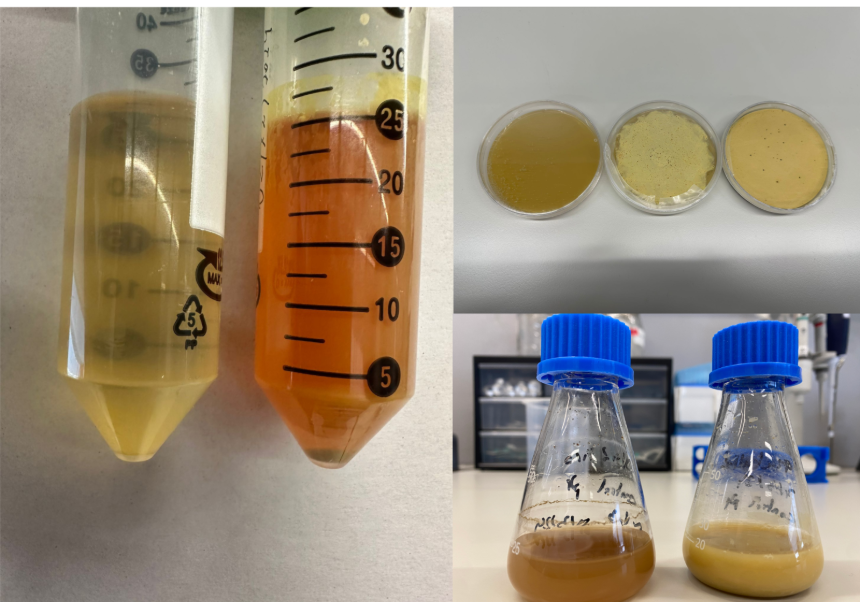
The group's tasks progress adequately and has achieved high biolixiviation yields of metals typically found in lithium-ion batteries.
The METALLON project ‘Innovative reuse and recycling methods for the extraction of high added value raw materials in lithium ion batteries’ (INNEST/2023/302) has been financed by the Valencian Agency for Innovation and the European Union through FEDER funds, the research group is successfully progressing in the development of the assigned tasks. Specifically, the task 3.4 ‘Evaluation of the bioleaching capacity of the selected microorganisms, measurement of the bioleaching kinetics and analysis of the critical parameters affecting the efficiency of the process’ developed by the GI2AM research group of the University of Valencia.
In this sense, the optimum pH value for the growth of the Acidithiobacillus ferrooxidans strain was determined and found to be in the range of 1.60-1.30. These bacteria oxidise ferrous to ferric ions favouring the dissolution of metals by redox processes. Comparative tests of the synthetic lithium ion batteries (LIBs) bioleaching process were performed under abiotic conditions and supplying the previously mentioned microorganism. In addition, bioleaching tests of synthetic LIBs at different loadings are being carried out, measuring the concentration of metals in solution. The dissolution yields obtained in these processes are high. Specifically, the yields of manganese are around 70-80%, while the values for cobalt are around 60-90%.







